|
by Glenn C. Koenig, webmaster at Town Wide Mall (Additional information for this story was contributed by Bob McCarthy, of the Maynard Marketing Task Force) Maynard, MA - Last night’s town meeting finally adjourned at 11:45 PM, almost five hours after it had started, without an official break. By that time, all 38 articles had been voted on, although at least half of the voters who were there at the beginning had already left. In spite of the length of the meeting, the moderator did his best to keep things moving along, and stood firm that applause, booing, or cheering would not be tolerated; the assembled voters quickly acquiesced. At one point, during the discussion of the school budget, I had half a mind to stand up and demand that the school department add a required course to the curriculum ... how to use a microphone! The student volunteers from WAVM there actually knew better than many of the adults in the room. But in spite of their best efforts to adjust the height and angle of the mic stands, many who got up to speak could not be heard, until admonished by the moderator to please speak directly into the thing.
Most of the articles were presented well by their proponents, and most were also voted on after only a brief discussion. Almost half the total time was spent debating just five articles: 4, 6, 7, 33, and 34. Article 4, about the use of “Certified Free Cash” (see my previous news report on how that works), was originally submitted by the Select Board. It requested that the fund be allocated to 24 various accounts. In the Warrant, the Finance Committee indicated that it would not have its recommendation for this article ready until the start of Town Meeting. At the meeting, the Finance Committee provided a separate page with their updated recommendations, for articles 4, 6, and 7. They did not recommend the amounts listed in the original Article 4, but their vote was split, 4 to 2. The reasoning of the majority was this: During the pandemic, partly because of the receipt of COVID relief funds, the schools did not spend all of their "Circuit Breaker" funds for Special Education that they received from the state. That unspent money ended up in the free cash account at the end of 2022. The idea was that it all should go back to the schools to help with the extraordinary increases in Special Education costs, as the use of those funds was originally intended. When Article 4 "came before" the meeting (was brought up for discussion and a vote), Natasha Rivera, Chair of the School Committee, offered an amended list of amounts, but the Finance Committee had not had a chance to vote on this new list. A slide was projected on the screen in front of the meeting with the her amended amounts, and she described the changes while at the microphone (See: https://www.townofmaynard-ma.gov/DocumentCenter/View/1864/2023-Annual-Town-Meeting-Presentation - slide #8), but there was no hand out with these changes for voters to read at their seats before hand. After much discussion on this, the vote was to approve the amended version, rather than the amounts shown in the Warrant for the original article. (I revised this paragraph on 17 and 29 May 2023, to correct errors. Please also read my notes in the "Comment" section, below the end of the main article.) Article 6 was the entire town budget, except for certain extra funds covered in later articles. Although Article 6 included funding for the School Department, they added Article 7, to increase their department's allocation by an additional $514,842. Both the Finance Committee and Select Board voted not to recommend Article 7, but their recommendations were only described in the pages they made available at the meeting, not in the Warrant, because their votes couldn't take place after the warrant was printed. These two articles got the most debate of the evening, taking us until well after 9 PM, with still 31 articles left to go! The school committee and school department officials went through an extensive presentation to support their position to increase their budget beyond what the finance committee had recommended in Article 6, in order to achieve what they called “level service operating expenses.” There were many questions back and forth, during which representatives for the other town departments stated that they had already backed off from “level service” funding for non-school operations, in order to make the budget balance. (I have revised this paragraph on 17 and 29 May 2023, also, for better clarity.) The overall Town budget (Article 6) passed , but the vote for Article 7 was only a simple majority (92 to 89), which caused some confusion at the meeting. Wording in Article 7 says "... from General Stabilization or other available funds in the treasury...," but it takes a 2/3 majority vote to spend any money from the General Stabilization fund (one of the town’s “savings accounts,” so to speak). I remember someone in the meeting saying that the lack of a 2/3 majority meant that the General Stabilization money could not be used, but perhaps other money could be appropriated from other sources. When I first posted this news report, I thought that was still possible. However, after doing further research, reading comments on this story (see below), and contacting the Town Administrator's office, I learned that the lack of a 2/3 vote on this article meant that it failed in its entirety. That means the school budget remains at the amount voted in Article 6. The presence of Article 7 is actually unusual, from what I understand; typically, anyone wishing to amend amounts in the budget would have offered an amendment to Article 6 itself, rather than introduce a separate article. As a side note, even after the votes on these two articles, there remains some uncertainty for the town. That's because the state (aka The Commonwealth of Massachusetts Legislature) has not yet finalized how much money it will grant to each town nor fees it will charge to each town, for next year (this is detailed on the so-called “cherry sheet” - a tally of state aid and charges to the towns, originally printed on bright pink paper years ago). This is a chronic problem that has been going on for many years, where the state requires the towns to vote on their budgets before June 30th, but fails to provide all the necessary information on time. So the town isn't "playing with a full deck," budget wise, by necessity. When it came to articles 33 and 34, there were plenty of questions and comments. Article 33 was about a non-binding vote (to recommend but not compel) to prohibit the use of fossil fuels in the proposed Green Meadow School building project. Article 34 was about the town adopting a building code standard (known as the STRETCH code) for any new buildings built in the future, in town. Both articles were introduced by Roger Stillwater, and both involved moving forward on so-called “green” policies, with the intention to reduce the environmental impact of the energy we use in buildings, yet to be built.
Comment Town Meetings typically face a trade off: Give the voters enough time to understand the Articles they are voting on, yet keep the meeting from running excessively long. This is the challenge that faces the moderator, as well as individuals who get up to ask questions or comment.
Article 4 is a good example. I was at the meeting as both a voter and a self-appointed reporter. Before the meeting, I had read the list of appropriations in Article 4, as shown in the Warrant, so I thought I was prepared to vote. I had just picked up the Finance Committee's report on Article 4 when I walked in the door, along with a number of other pages of additional information on other articles. I sat down with a lot of reading to do, just as the meeting was starting. The Finance Committee's recommendation for Article 4 was a full page of description of the changes they wanted to make. I don't fault them for that; the situation that they wanted to address was complex and not easy to describe. I think they did a good job, but I found it difficult to read and understand the entire thing while sitting my seat while the meeting was going on. In addition, their suggested changes, as well as a slide on the screen, gave the specific amounts in paragraph form, not in a tabular form, as was the original article in the Warrant. I would have liked to see two columns, with the original amounts side-by-side with the revised ones. As it was, it took more time for me to understand clearly what they were proposing. Because representatives from the School Committee and administration also spoke from the stage in favor of the changes, I became confused as to who was asking for what. It is partly for this reason that my original report on Article 4 was in error (see note regarding my revisions, above). Fortunately, two people sent messages to me, advising me of my error and I was able to go back to re-read the materials and revise my report, just now. I believe that I have corrected those errors, but if there are still issues, I'm open to hearing them. My report on Articles 6 and 7 was somewhat confusing. In my original write up, I had seemed to imply that the School Budget is traditionally voted apart from the rest of the town budget. This, however is not the case; the school budget is typically included. Article 7 was included as a separate article, instead of the School Department offering a substitute motion for Article 6. This has been one of the most difficult news reports I have posted so far, since I started Town Wide Mall last month. This kind of report poses a difficult challenge for any reporter. If the story is too brief, it may not report all the relevant facts or provide enough perspective on what happened. On the other hand, if the article goes into too much detail and runs too long, there's a risk that readers will end up overwhelmed, give up, and never read the rest.
3 Comments
Sarah Pryputniewicz
5/16/2023 02:53:55 pm
My understanding is that Article 7 failed, and I believe that's what Mr. Downey announced. It failed to get a 2/3 majority, which was needed according to the article phrasing (funds coming from General Stabilization fund or other funding sources).
Reply
Denise Shea
5/17/2023 04:16:39 pm
Another great article! I'm so glad you're doing this.
Reply
Alannah Gustavson
5/18/2023 07:59:56 am
I am sorry that Fincom had to present three article recommendations at Town Meeting. Ideally, they would all have made it into the printed warrant, but given the timeline of when the deadline is for printing, sometimes articles have been brought forward or amended so close to it that we don't have time to deliberate and submit before the Warrant goes to the printers. Apologies to Town Meeting Voters who had a lot to absorb on their arrival. Thank you to everyone who sat through that marathon meeting!
Reply
Leave a Reply. |
AuthorWrite something about yourself. No need to be fancy, just an overview. Archives
June 2024
Categories |
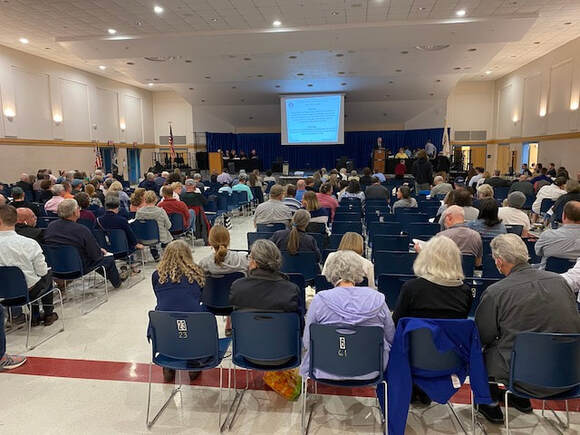
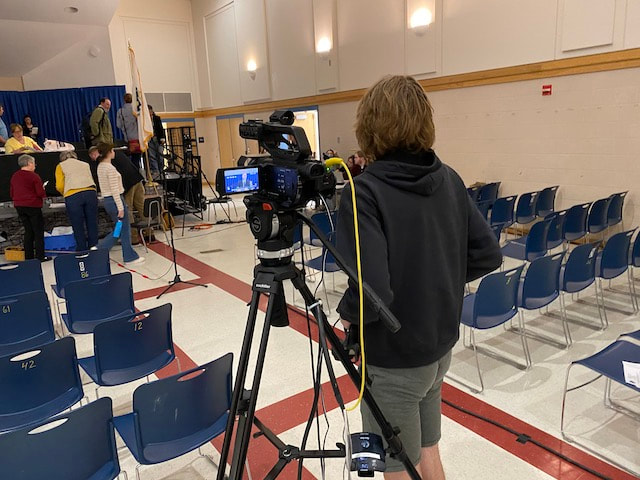
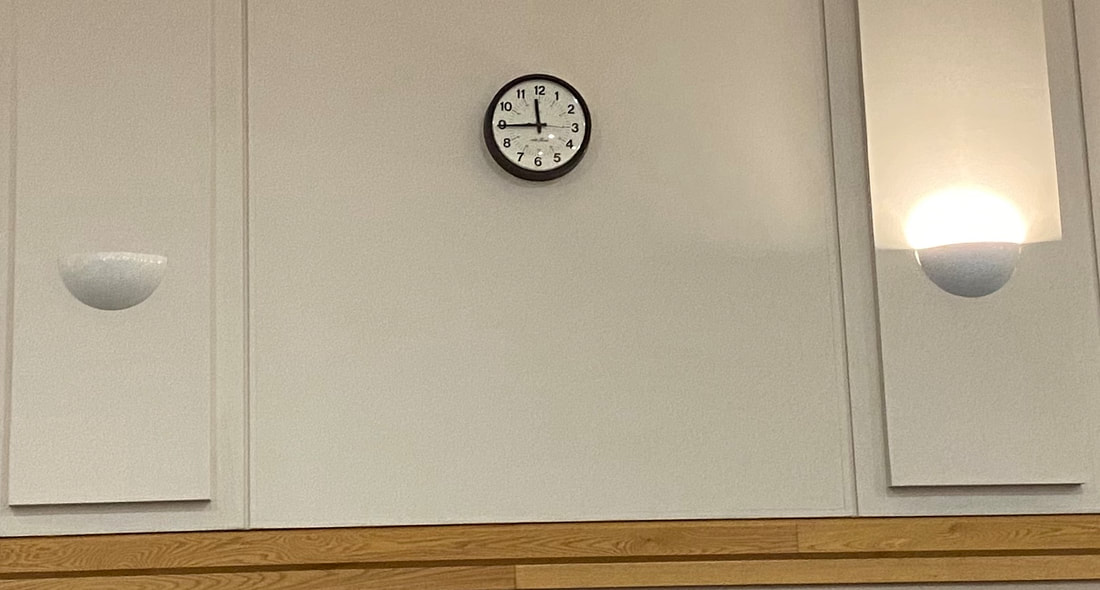
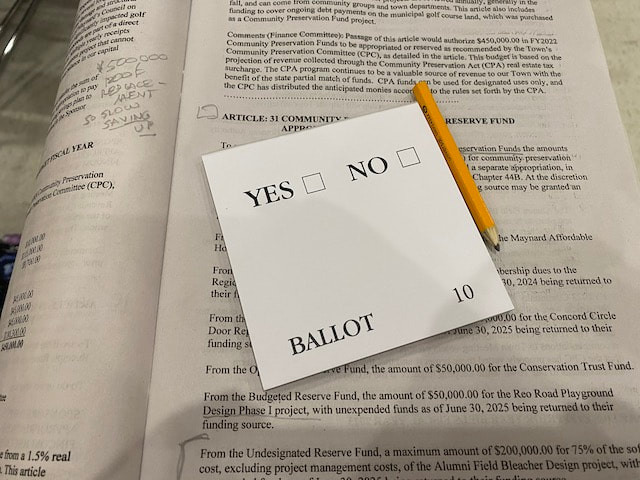
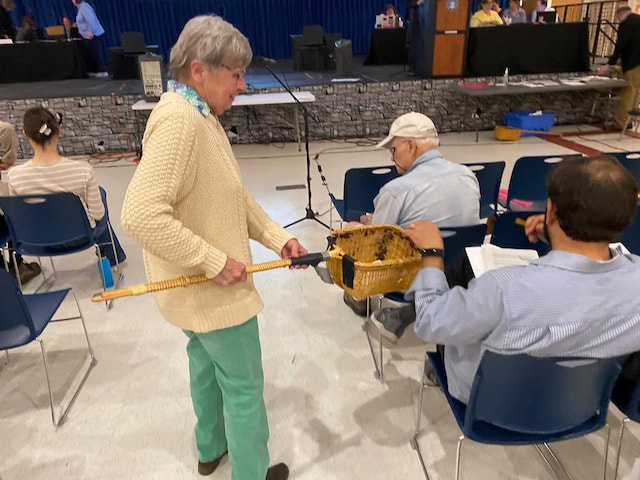
 RSS Feed
RSS Feed